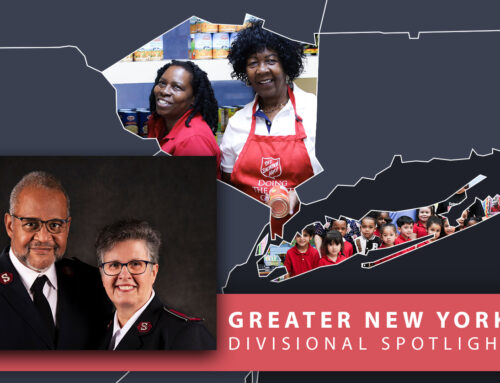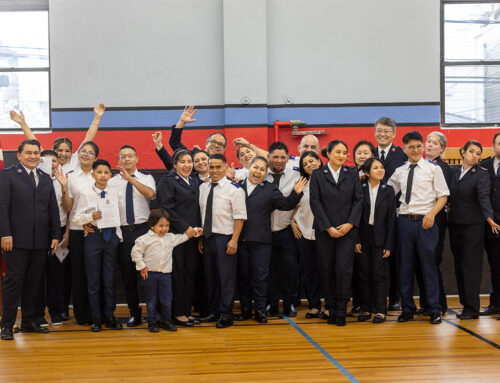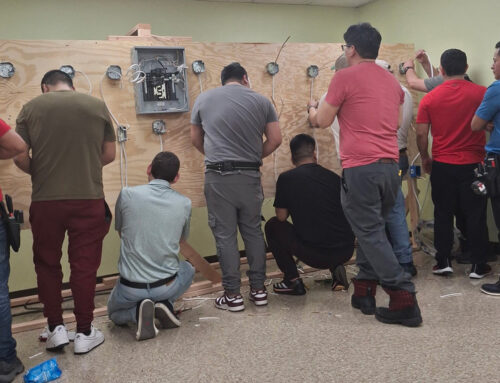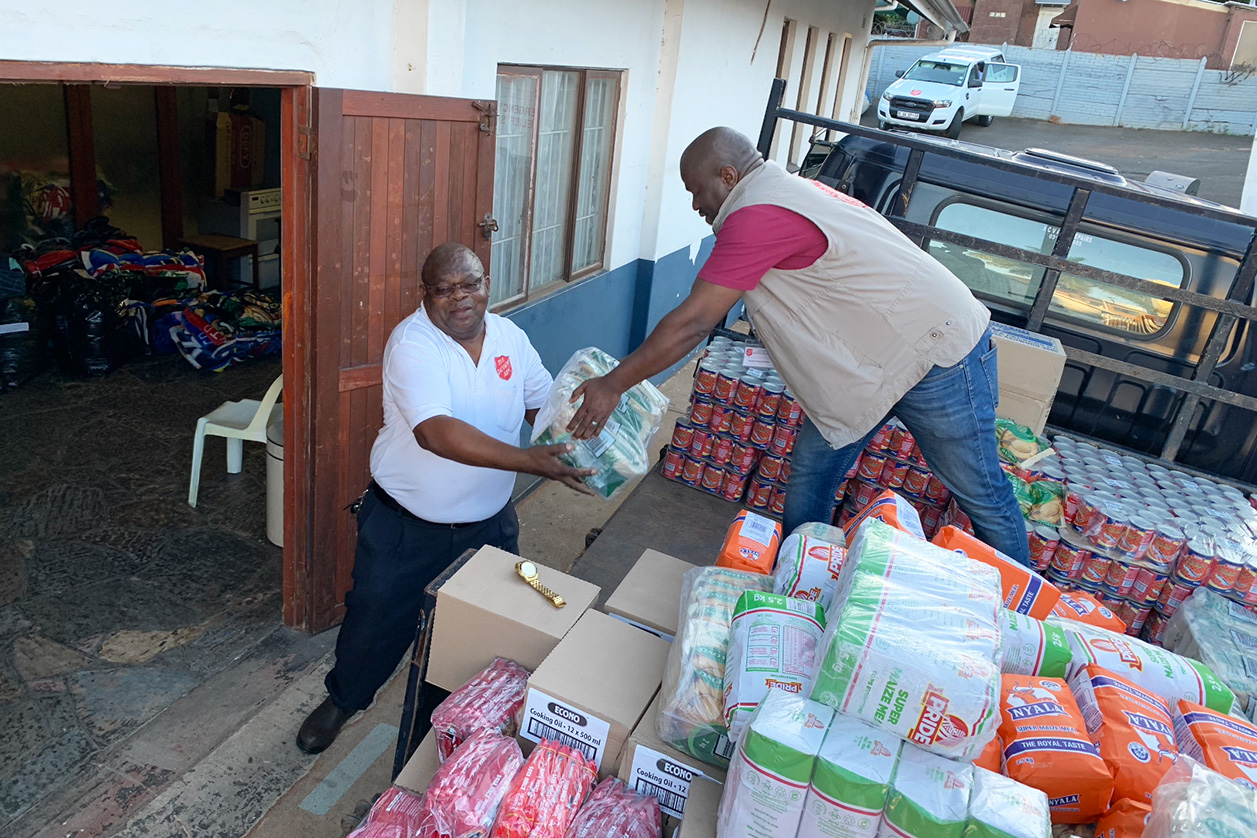
After the floods
by Hugo Bravo
When storms and heavy rain fell upon South Africa in April 2022, The Salvation Army was quickly on the scene. The loss of life and homes damaged were far beyond what the young officers and employees of the territory could have imagined.
“There were an estimated 12,000 destroyed homes,” says Major Brendan Browski, the divisional commander of the affected region. “The informal settlements and poorer areas were hit the hardest, but roads and telephone lines in wealthier areas also suffered damage. In Durbin, water overflowed, causing as many as 4 million people to be without clean water for weeks.”
Salvation Army disaster relief workers in South Africa operate with only a fraction of the resources and manpower available in the United States. Nonetheless, the Army mobilized its personnel to bring food, mattresses, blankets, clothing, and supplies such as water purification tablets to 40,000 displaced people.
“We also visited, fed, and counseled families who had experienced loss in any way,” says Major Browski. “Losing money and homes is one thing, but we’re also seeing livelihoods and loved ones taken away from them. Imagine, stepping out of your house, looking back, and seeing your family and everything you own—gone.”
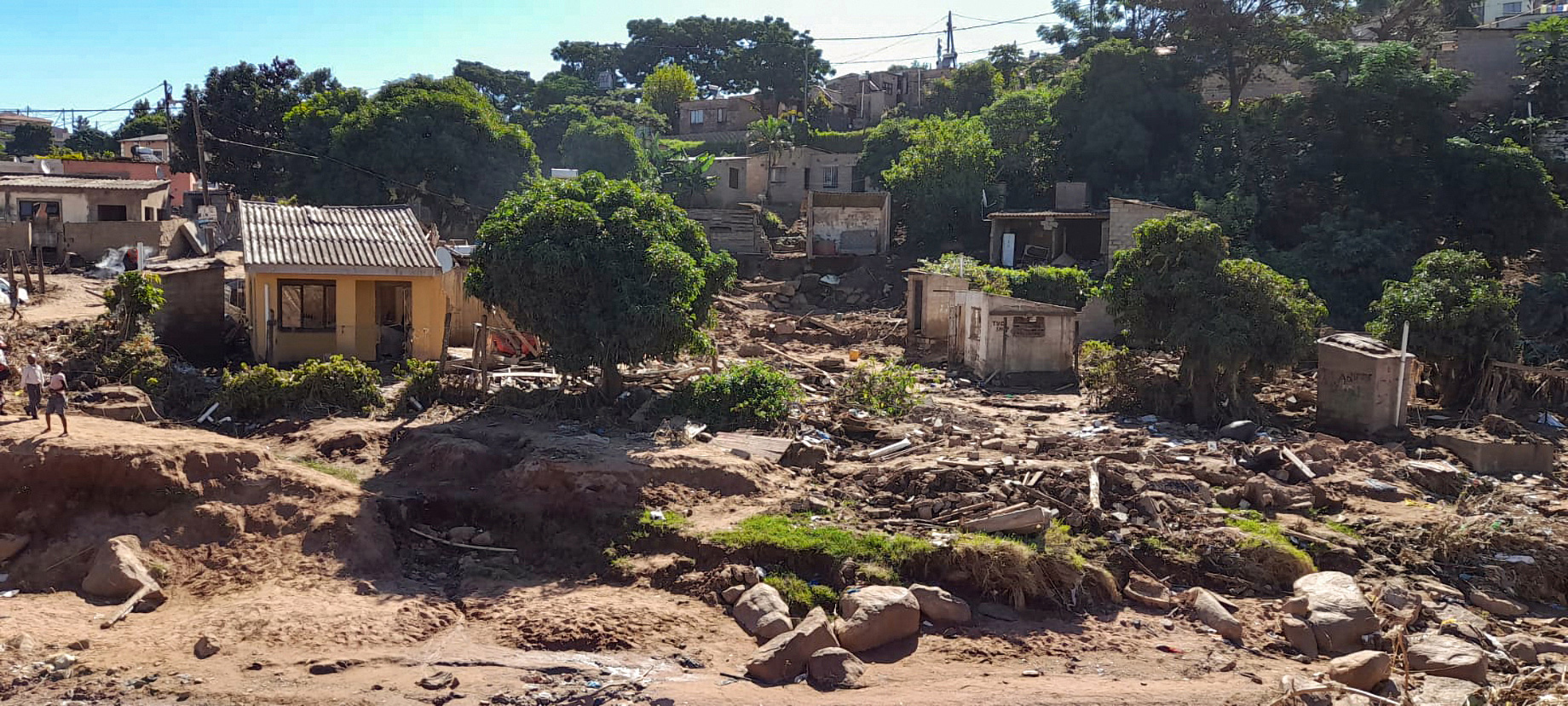
Visiting and listening
Captain Velani Buthelezi, public relations officer for The Salvation Army in South Africa, was the face of the Army’s presence after the floods. He worked on location with volunteers, employees, and officers.
“One of the things that our ministry highlights is visiting families of the deceased. We went to a home where the family had lost five children in the flood. The next week, we were at a funeral where four children were being buried,” says Captain Buthelezi. “For them to see us there is the first step in bringing comfort. Our presence was more important than anything we could say.”
Captain Buthelezi admits that he doesn’t remember what he said at the funeral, but the message he wanted to give grieving families was that The Salvation Army was there for them.
Buthelezi does recall speaking to a father who had lost his 10–year–old son in the floods. The grief–stricken father expressed that he did not know how to go on with his life.
Says Captain Buthelezi, “When we are there, I stress to our people not to say, ‘It’s going to be alright,’ because things are not alright. So, I said to him, ‘My brother, God is here, but we know that things are not well.’
“There is no such thing as a quick, global answer to that type of loss and suffering. Instead, I listen to them as they verbalize their pain. I remind them that I am by their side, and they are in my prayers. The people of South Africa are open and receptive to hearing someone say that they’ll pray for them.”
Facing the trauma
After COVID–19 lockdowns, civil unrest, and now the floods, South African residents have changed how they live, think, and respond to crises. Major Browski remembers hearing a volunteer tell the story of a boy who played at a site where the Army was feeding the community.
“He was grateful for the food but said the bigger problem for his village were the nights when no one could sleep. They were having nightmares that the water was coming for them again. Every time it did rain, people stayed home in fear. That’s how traumatized and afraid they were,” says Major Browski.
That trauma has also affected the officers, many of whom are learning the ministry of responding to disaster as they go. “Day after day of burying people and visiting families who have experienced loss takes a unique toll on us,” says Major Browski. “It’s not that we want to make our officers so tough that tragedy doesn’t affect them at all. On the contrary, this will affect them for the rest of their lives and shape their own future ministries.
“But the question is, how can we help them turn this into something they can manage? Just now, we are getting the systems and processes to help them acknowledge their own pain.”
Says Captain Buthelezi, “Talking about it, hearing it, and sharing it all take a toll. We sometimes ask ourselves, who will care for us?”
One officer told Buthelezi about a man whose sister was the head of the household. As they left their home during the storm, she went back inside to retrieve something. The brother saw the house move and float away with his sister still inside. He had not yet told their mother what had happened to her daughter. “Our officers hear stories like that every day they’re working,” says Captain Buthelezi.
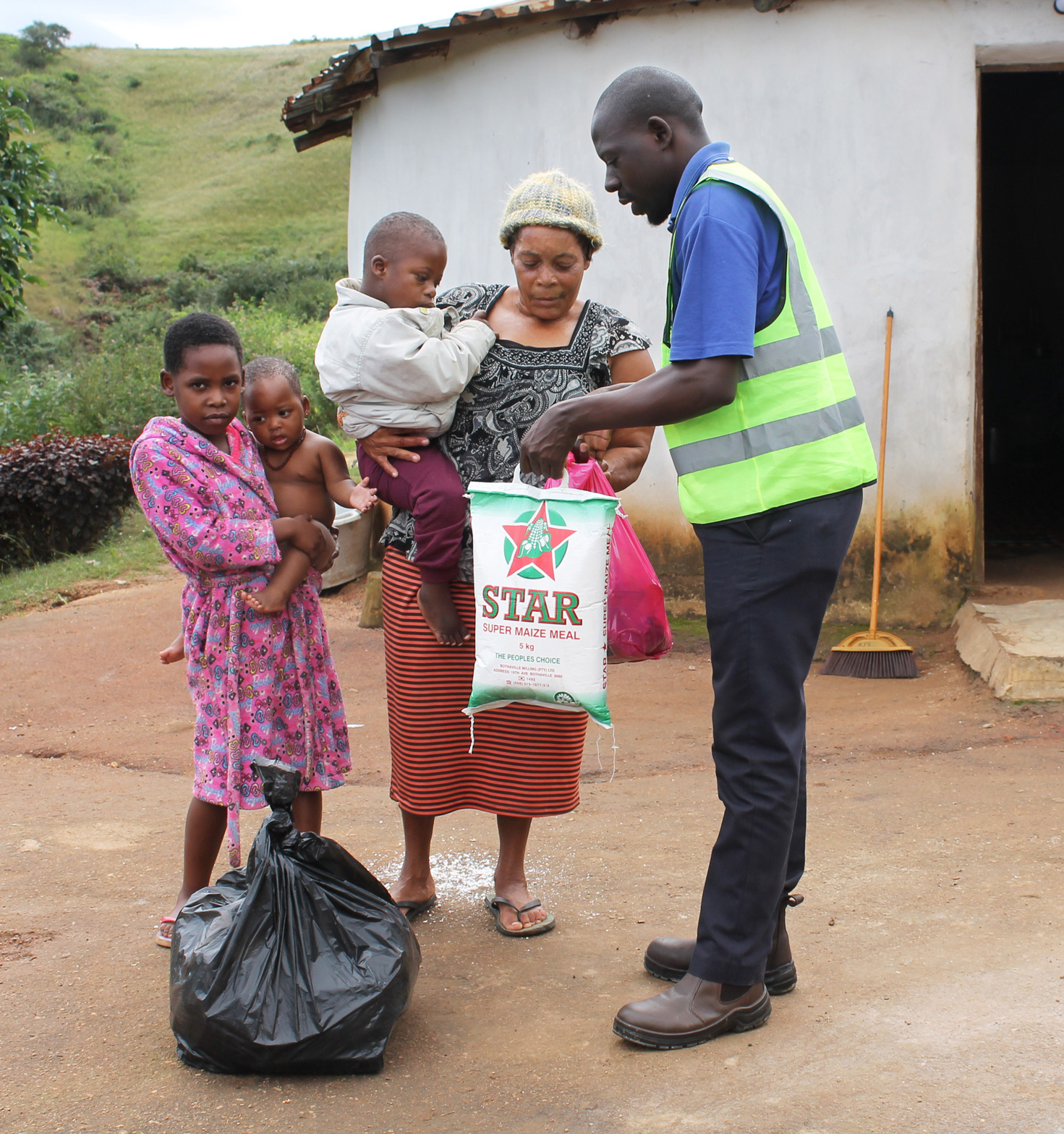
Going forward with God
Though some families in South Africa have returned to their homes, many areas are still not safe to rebuild. Better infrastructure, says Browski, is the first step to rebuild better, safer living spaces. “There are places where homes should not have been built in the first place,” says Browski.
“We also need to have a reserve in place for emergencies such as this. Not just as in money, but in resources and our own Salvation Army structures that we can have ready for any disaster. It might help us do better and act faster,” says Buthelezi.
Captain Buthelezi says that his role as the spokesperson for the Army’s presence benefitted from the two weeks that he spent working on the ground with other officers.
“The best interviews I did came after I had seen first–hand what was happening and had spoken to families of victims and journalists covering the floods,” says Buthelezi. “That’s when I was able to convey my true emotions and share that God’s power and presence was with everyone suffering.”
Major Browski says that God’s presence was also working behind the scenes with him. Though Browski was not engaging with flood survivors like other officers were, he says that it was with God’s help that he kept his mind on the logistics and proper distribution of the Army’s resources, without being emotionally connected to where they were going.
“The Lord was giving me wisdom while I was doing work that I had never done before,” says Browski. “He was saying, ‘Connect with your people on the ground. Encourage, support, and pray with them, but you need to be logical and isolated now.’
“We prayed constantly, wondering how we would get the funding and resources that we needed. Then suddenly, we would get the news that money was now available or God would direct us to where we could get supplies,” says Browski.
“To help His children, God opens doors out of nowhere.”
Read more from the latest issue of SAconnects.

